Books & Culture
What It’s Like to Lose Your First Language
Trying to understand Sinhala now feels like flexing a phantom limb
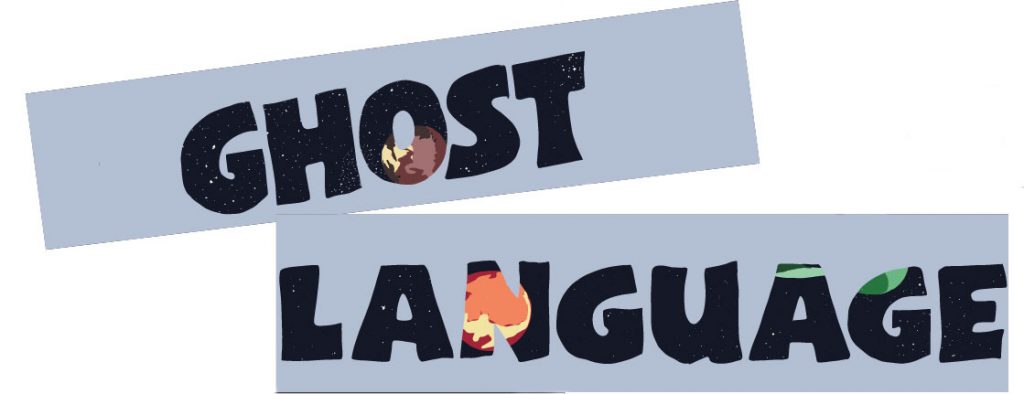

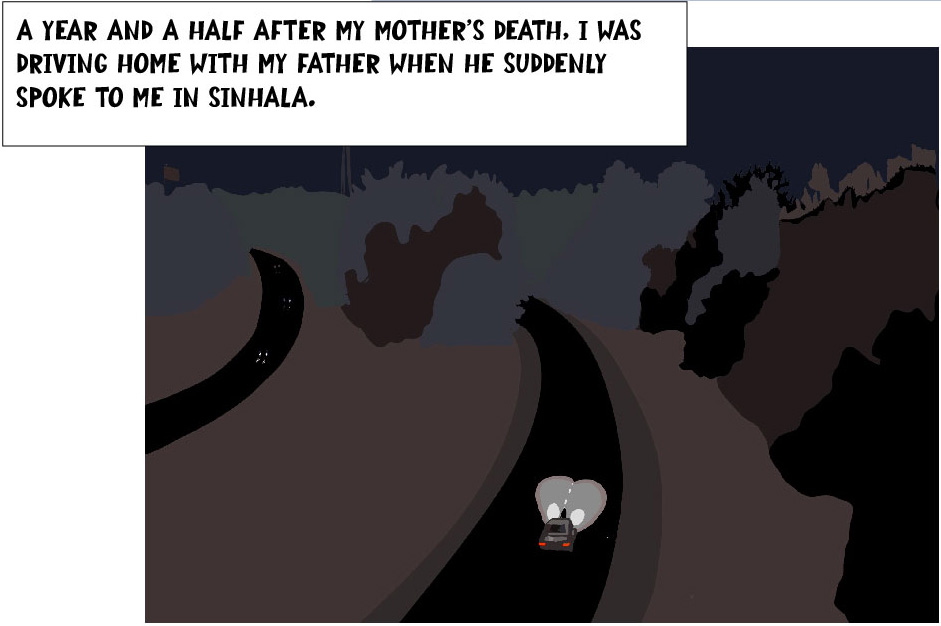
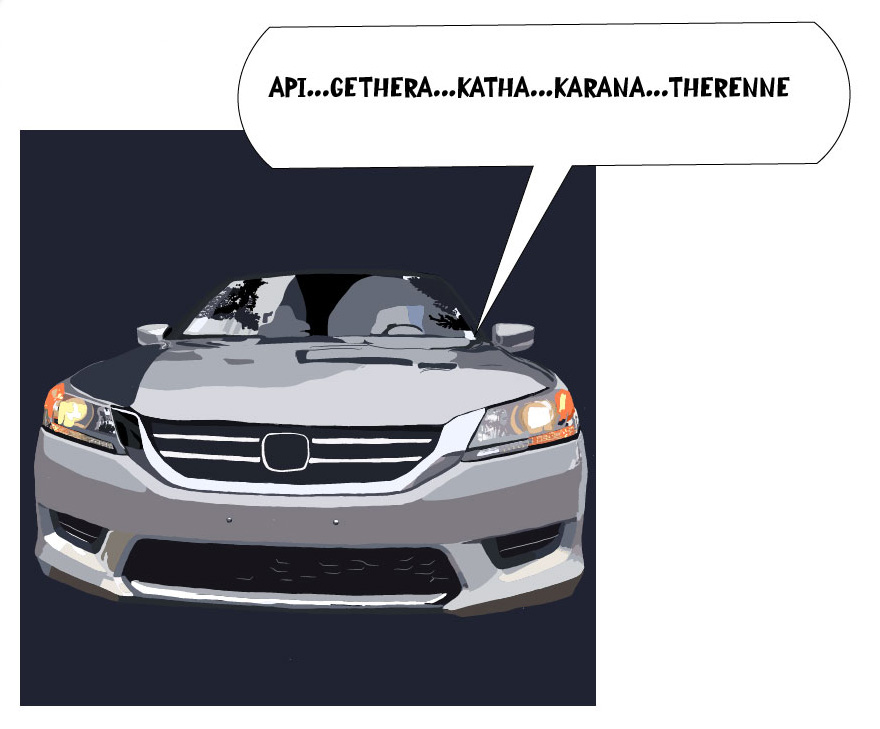
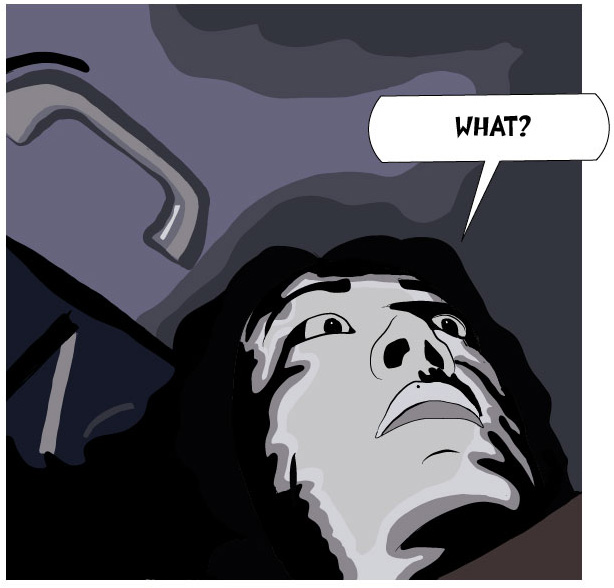
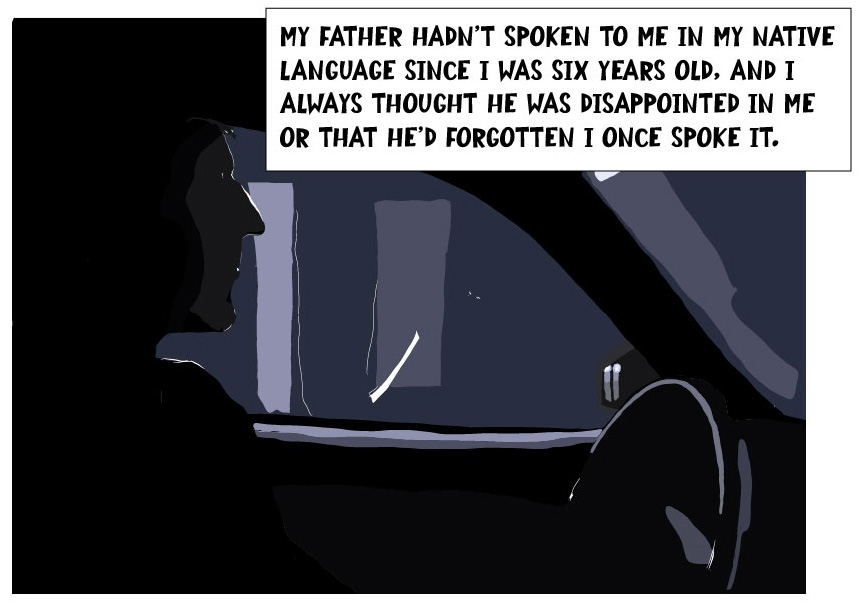
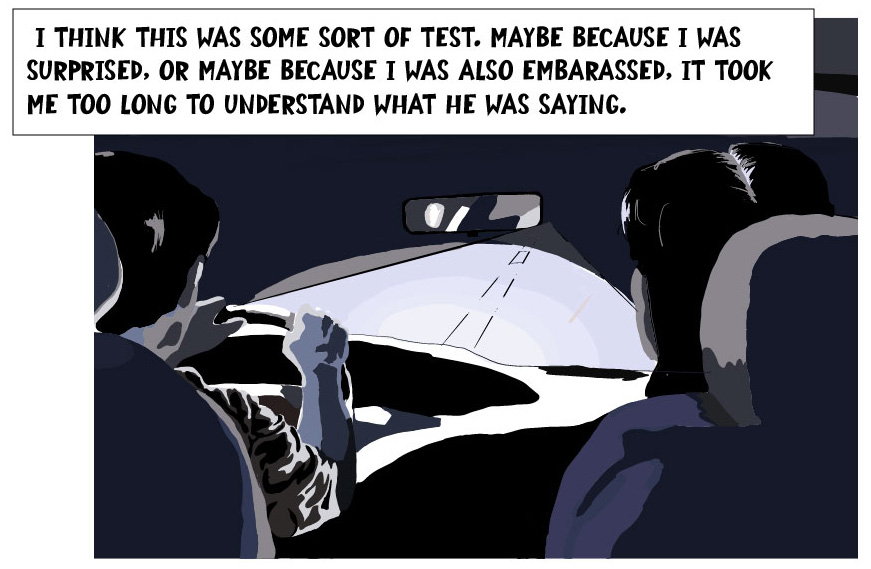
![When I was six, my English teacher asked my parents to stop speaking to me in my first language.
[Picture of Hasanthika as a six-year-old]
Teacher, offscreen:"Well, Mrs. Sirisena, she's very quiet in class."](https://149349728.v2.pressablecdn.com/wp-content/uploads/2020/08/Me-in-Kindergarten-Panel-7.jpg)
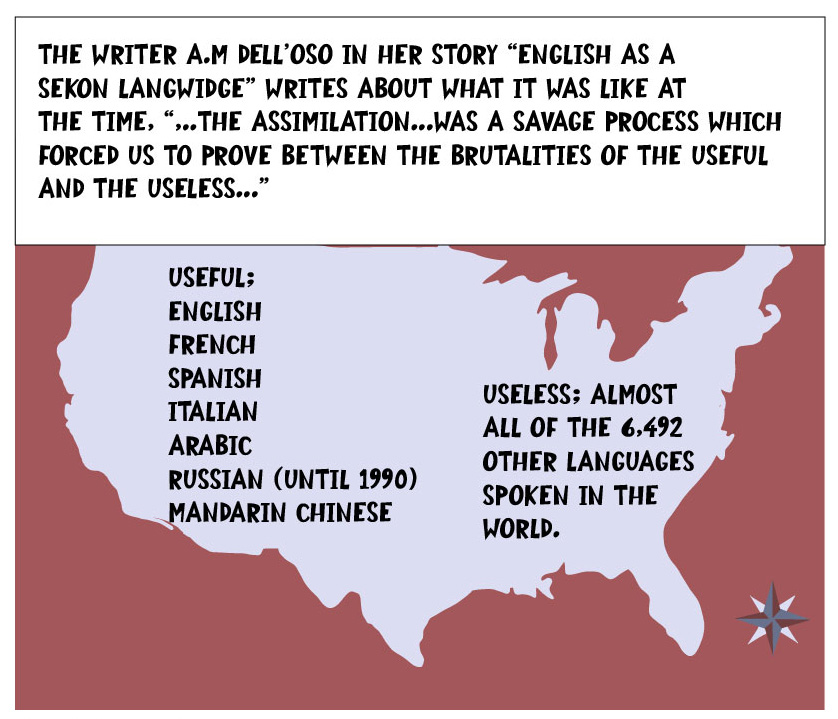
![My mother still sometimes spoke to me in Sinhala. Even though I understood I wouldn't speak it. This hurt her most when strangers asked why she hadn't taught me.
Hasanthika's mother, offscreen: "Oyaa thawma laesthi naethe?"
Hasanthika, as a preteen: "I'm ready!"
[Next panel]
A woman with long dark hair: "She speaks only one language?"
A man in an orange robe: "It is her mother tongue?"
A man in a polo shirt: "My kids speak three languages fluently."](https://149349728.v2.pressablecdn.com/wp-content/uploads/2020/08/PANELS-9-10_Ghost-Language-Comic-Sirisena-1024x458.jpg)
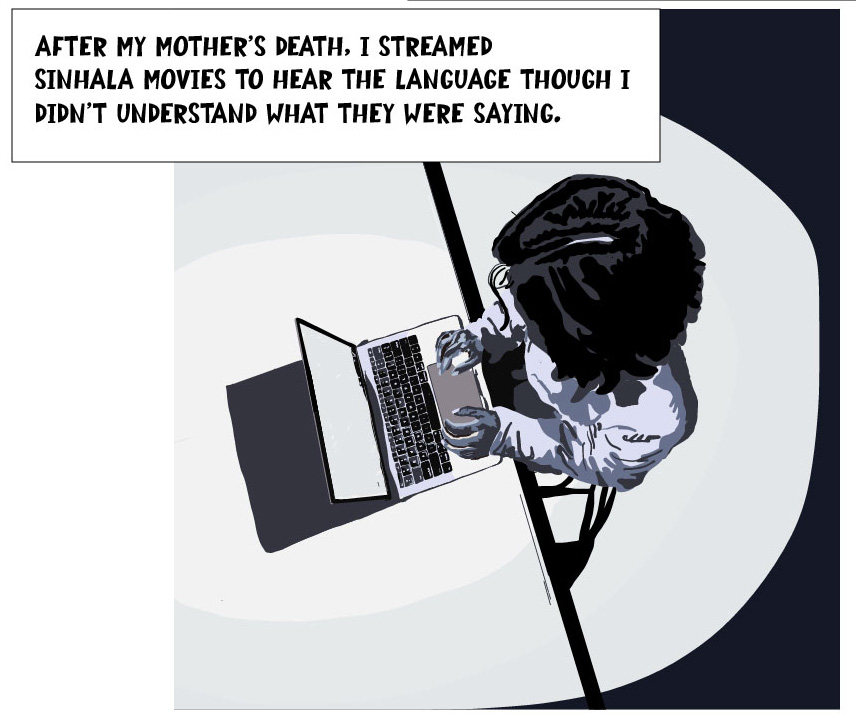
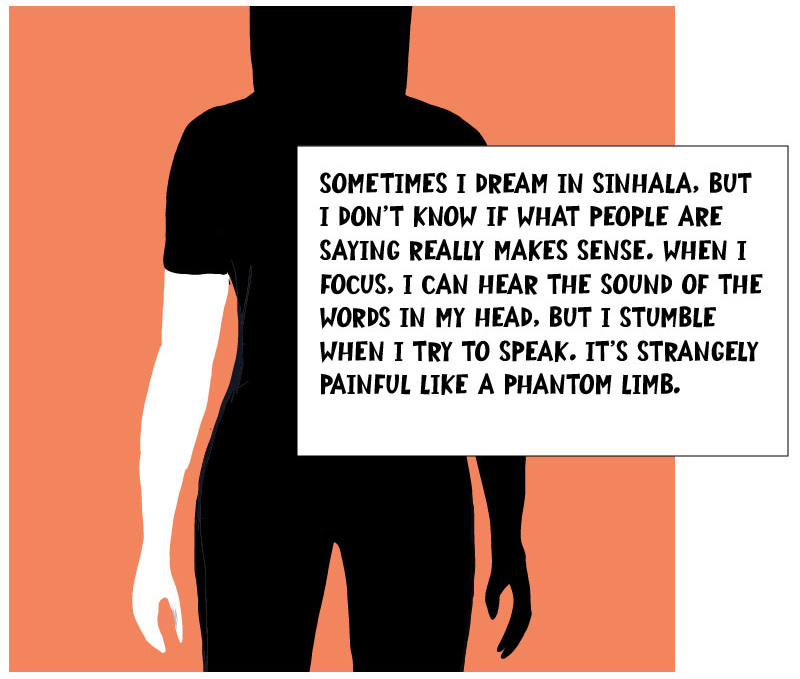
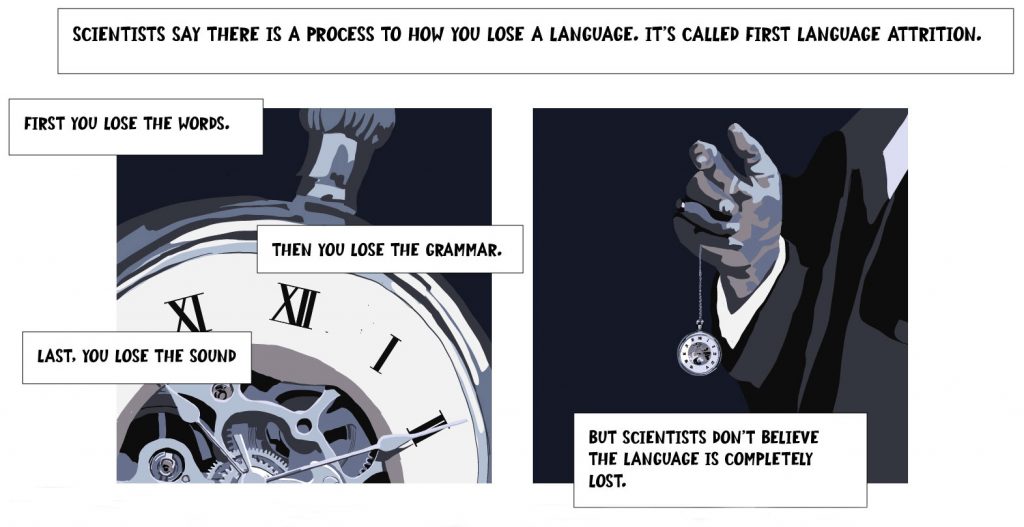
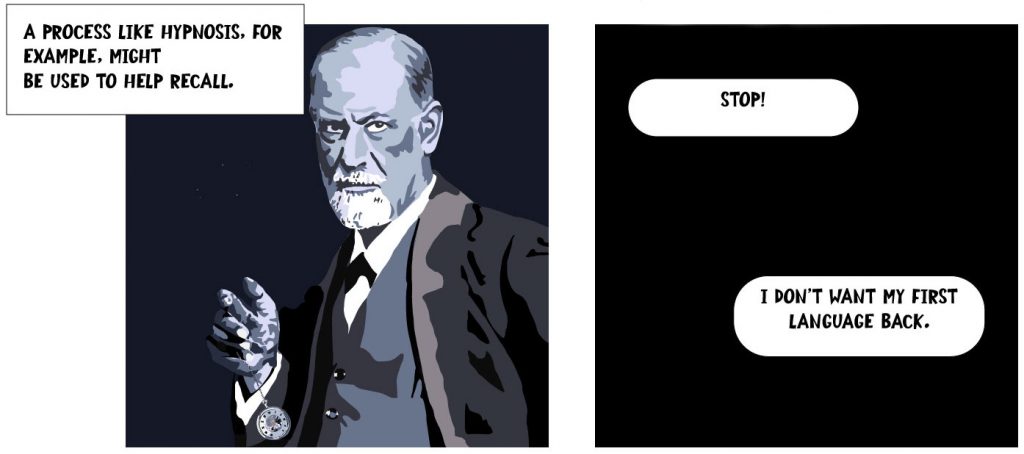
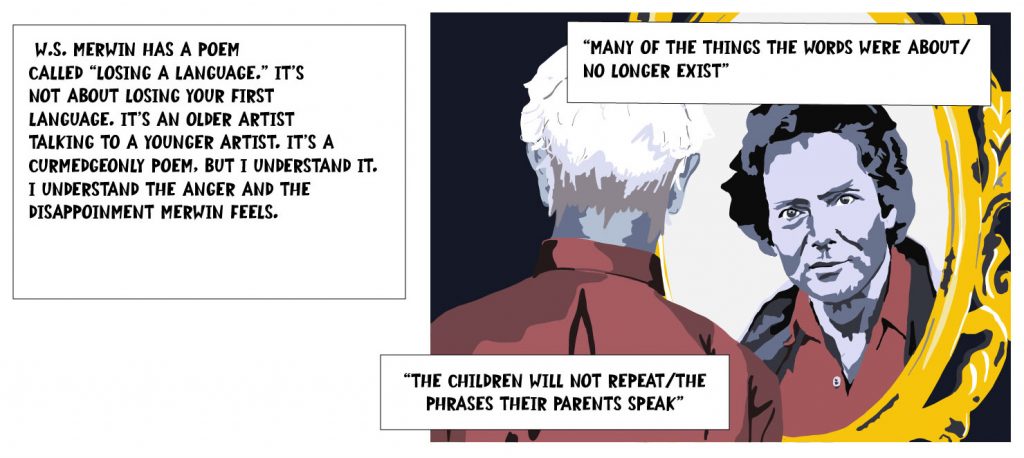
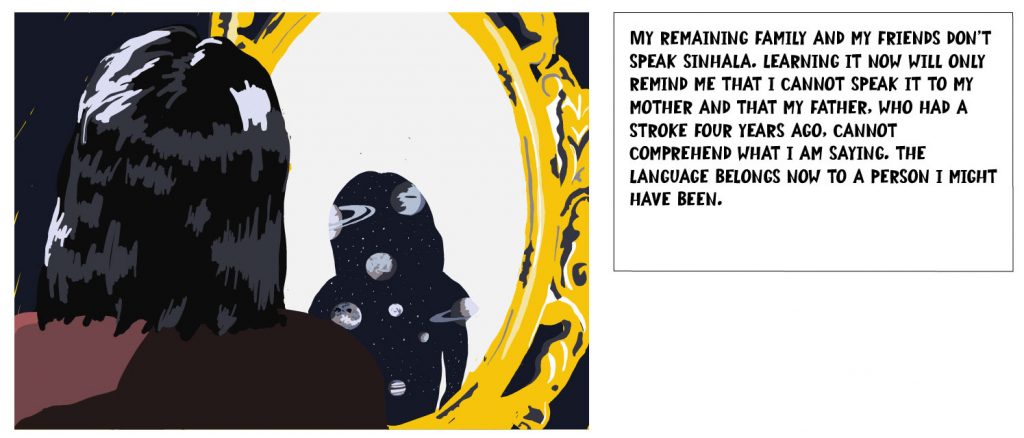
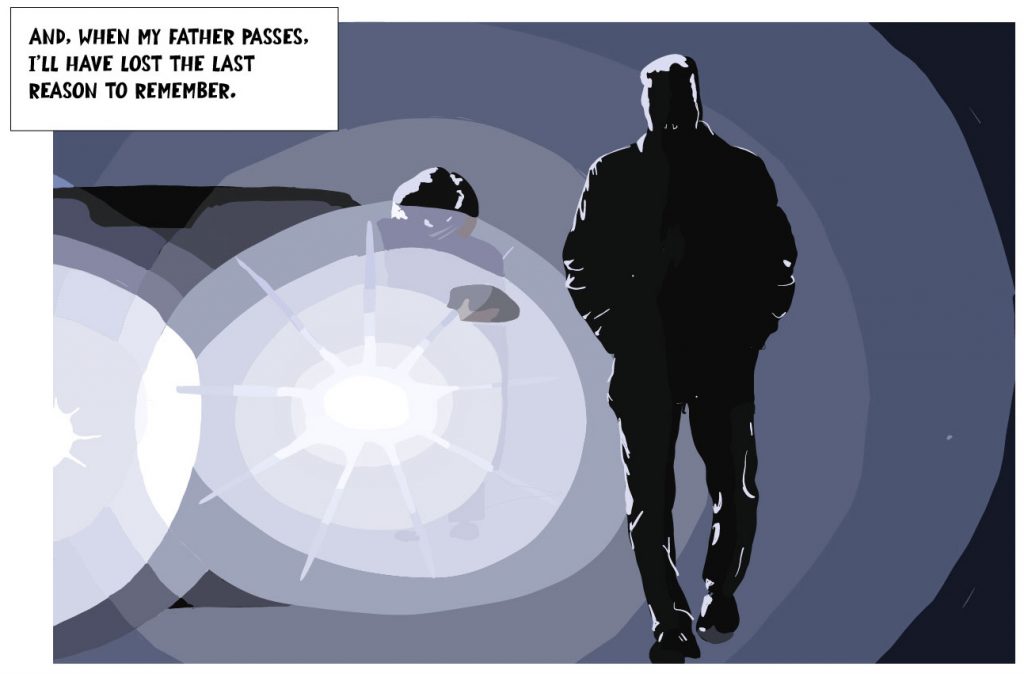
![[Portraits of Hasanthika as a baby with her parents, labeled Amma (mother) and Thatha (father)]](https://149349728.v2.pressablecdn.com/wp-content/uploads/2020/08/PANELS-20-21_Ghost-Language-Comic-Sirisena-1024x490.jpg)








![When I was six, my English teacher asked my parents to stop speaking to me in my first language.
[Picture of Hasanthika as a six-year-old]
Teacher, offscreen:"Well, Mrs. Sirisena, she's very quiet in class."](https://149349728.v2.pressablecdn.com/wp-content/uploads/2020/08/Me-in-Kindergarten-Panel-7.jpg)

![My mother still sometimes spoke to me in Sinhala. Even though I understood I wouldn't speak it. This hurt her most when strangers asked why she hadn't taught me.
Hasanthika's mother, offscreen: "Oyaa thawma laesthi naethe?"
Hasanthika, as a preteen: "I'm ready!"
[Next panel]
A woman with long dark hair: "She speaks only one language?"
A man in an orange robe: "It is her mother tongue?"
A man in a polo shirt: "My kids speak three languages fluently."](https://149349728.v2.pressablecdn.com/wp-content/uploads/2020/08/PANELS-9-10_Ghost-Language-Comic-Sirisena-1024x458.jpg)







![[Portraits of Hasanthika as a baby with her parents, labeled Amma (mother) and Thatha (father)]](https://149349728.v2.pressablecdn.com/wp-content/uploads/2020/08/PANELS-20-21_Ghost-Language-Comic-Sirisena-1024x490.jpg)
"Family Time," a graphic narrative by Kat Y Tang
Lee Lai's graphic novel "Stone Fruit" follows a queer couple as their relationship falls apart
Weng Pixin on reimagining the lives of five generations of her female ancestors in "Let’s Not Talk Anymore"